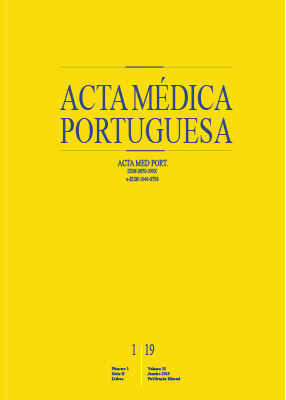Informed Consent - Vision and Perspectives of Adolescents, Parents and Professionals: Multicentric Study in Six Hospitals
DOI:
https://doi.org/10.20344/amp.10826Keywords:
Adolescent, Decision Making, Health Personnel, Informed Consent, Parents, PortugalAbstract
Introduction: According to the Convention on the Rights of Children and the national standards of the Portuguese Directorate-General for Health, adolescents have the right to make decisions about their own health. The aim of this study was to identify the dynamics of the implementation of assent and informed consent in hospital settings.
Material and Methods: Cross-sectional and multicentre study based on surveys, which included adolescents from 14 to 18 years and their parents. Heads of departments of Pediatrics and attending physicians were also interviewed.
Results: 194 responses from adolescents and parents were collected, and 46 interviews were conducted with physicians and heads of department. Adolescents and parents consider participation in decision making important, but parents value their own participation significantly higher (91.7% vs 47.8%, p < 0.001 in the 14 - 15 year group, 91.8% vs 53, (89.6% vs 69.6%, p = 0.016 in the 14 - 15 year group, 91.8% vs 69.4%, p = 0.005 in the 16 - 17 years group). Information leaflets are difficult to understand by teenagers. The eight heads of department felt that doctors have awareness towards communication with teenagers but have little time available. Of the 38 attending physicians, 36 said they had learned from their older colleagues and confirmed gaps in postgraduate training.
Discussion: This pioneering study in Portugal enabled the identification of areas that can be optimized, through health education programs for parents and adolescents, written information that is adequate to the different age groups, training in undergraduate education for medical students and also education in health institutions for professionals.
Conclusion: Adolescents and parents, are unaware of legal and ethical standards for consent and assent. The implementation of the adolescents’ right to informed assent / informed consent was not observed. Our proposal is to implement local programs for adolescents and parents.
Downloads
Downloads
Published
How to Cite
Issue
Section
License
All the articles published in the AMP are open access and comply with the requirements of funding agencies or academic institutions. The AMP is governed by the terms of the Creative Commons ‘Attribution – Non-Commercial Use - (CC-BY-NC)’ license, regarding the use by third parties.
It is the author’s responsibility to obtain approval for the reproduction of figures, tables, etc. from other publications.
Upon acceptance of an article for publication, the authors will be asked to complete the ICMJE “Copyright Liability and Copyright Sharing Statement “(http://www.actamedicaportuguesa.com/info/AMP-NormasPublicacao.pdf) and the “Declaration of Potential Conflicts of Interest” (http:// www.icmje.org/conflicts-of-interest). An e-mail will be sent to the corresponding author to acknowledge receipt of the manuscript.
After publication, the authors are authorised to make their articles available in repositories of their institutions of origin, as long as they always mention where they were published and according to the Creative Commons license.









